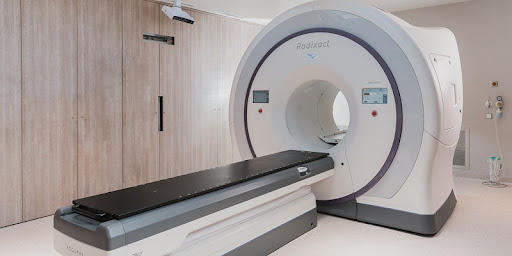Technology has advanced significantly in the health sector, providing multiple ways to monitor our health and detect potential issues. One of these technologies is the Full-Body MRI.
What is a Full-Body MRI?
MRI, also known as Full-Body Magnetic Resonance Imaging, helps us analyze our bodies in detail. By the end of this article, you will explore the pros and cons of getting a Full-Body MRI scan and how this technology evolves around us, alleviating the chances of falling sick.
Understanding the Full-Body MRI
A Full-Body MRI is a medical imaging technique that uses a powerful magnet and radioactive waves to create detailed images of the part inside our body. Unlike traditional X-rays, which use high ionizing radiation, the MRI involves non-ionizing radiation. It is safer than the conventional X-ray as it is less likely to harm your skin cells and tissues in the human body.
Benefits of Full-Body MRI
When it comes to getting a Full-Body MRI, it has multiple benefits. First of all, one of the primary advantages of MRI is its ability to provide a detailed view of all the internal organs and tissues in the human body. These comprehensive MRI scans help the doctor detect different health conditions and abnormalities in a patient's body. Not just this, but an MRI also assists in finding health issues such as tumors and neurological disorders at an early stage, providing enough time to the doctors for treatment and saving the patient's life.

Secondly, Full-Body MRI relies completely on magnetic fields and radio waves, making it safer for repeated use without the risk of radiation exposure, unlike the X-rays or CT scans, which use ionizing radiation that can damage cells and genetic material such as DNA,
Risks and Considerations
Although Full-Body MRI scans provide numerous health benefits, they come with disadvantages, too. For instance, MRI scans are quite expensive and out of reach of a middle-class person and often not covered by health insurance, making this cost of MRI a barrier for many individuals.
Moreover, sometimes MRI scans produce false-positive results indicating a problem that doesn't exist, leading to unnecessary anxiety and further medical tests, again making it expensive for the patient. Full-body MRI may not always be the best option for certain medical concerns. For example, it is not used for detecting fractures or assessing bone density.
When to Consider a Full-Body MRI
Many people are concerned about when to take a Full-Body MRI or if it is really necessary to take a Full-Body MRI. Here are a few pointers you should take into consideration if you are confused :
- Family History: If you have a strong family history of conditions like cancer or heart disease, a Full-Body MRI should be considered part of a proactive health plan.
- Symptoms or Risk Factors: If you are facing some specific symptoms associated with any disease for a long time, it will be better to take a Full-Body MRI to investigate further as, in this case, the other diagnostic methods would not be the best option to get a clear answer.
- Health Screenings: Some individuals opt for periodic Full-Body MRI screenings as part of a preventive healthcare regimen, especially if they are at a higher risk of developing certain diseases.
The Importance of Consultation
Medical Guidance: Deciding whether to get a Full-Body MRI should always involve consultation with a qualified healthcare provider. They can assess your health history, risk factors, and medical needs.
Informed Decision: Your doctor can help you make an informed decision by explaining the benefits and risks of a Full-Body MRI. They can also guide you on alternative tests or screenings that may be more appropriate for your situation.

Alternatives of Full-Body MRI
Full-body MRI is used for the early detection of tumors or other diseases that are not easily detectable until they reach later stages. However, there are alternatives to MRI such as Mammograms and Pap Smears. This technique is used for people concerned with breast and cervical cancer, this alternative has been proven to be effective and is globally used by healthcare providers.

Another substitute for MRI is a colonoscopy, in which a doctor uses a colonoscopy to look inside the colon and rectum to detect tumors such as colorectal cancer. Besides this, a Bone Density Scan (DEXA) can be used to assess a person's bone health and risk of osteoporosis.
In a nutshell, Full-Body MRI has been proven to be a powerful tool in detecting diseases easily at an early stage with its exceptional benefits; however, a person should consider their health factor and guidance from healthcare providers before deciding to get a Full-Body MRI.
FAQs
What is the cost of a full-body MRI?
The cost of a full-body MRI varies depending on where you live and the facility you choose for the MRI. For more information, you can ask any local healthcare provider or the imaging centers for more details regarding the price.
Are there any specific preparations I need to make before a full-body scan?
Generally, you will get instructions from your healthcare provider before conducting the scan; however, the basic requirements are fasting for a few hours, avoiding specific medications, or wearing a particular type of clothing.
How often should I get a Full-Body scan?
Full-body scans are not recommended for routine use as they involve radiation exposure; hence, It's best to consult with any healthcare provider who can assess your health history and risks.








